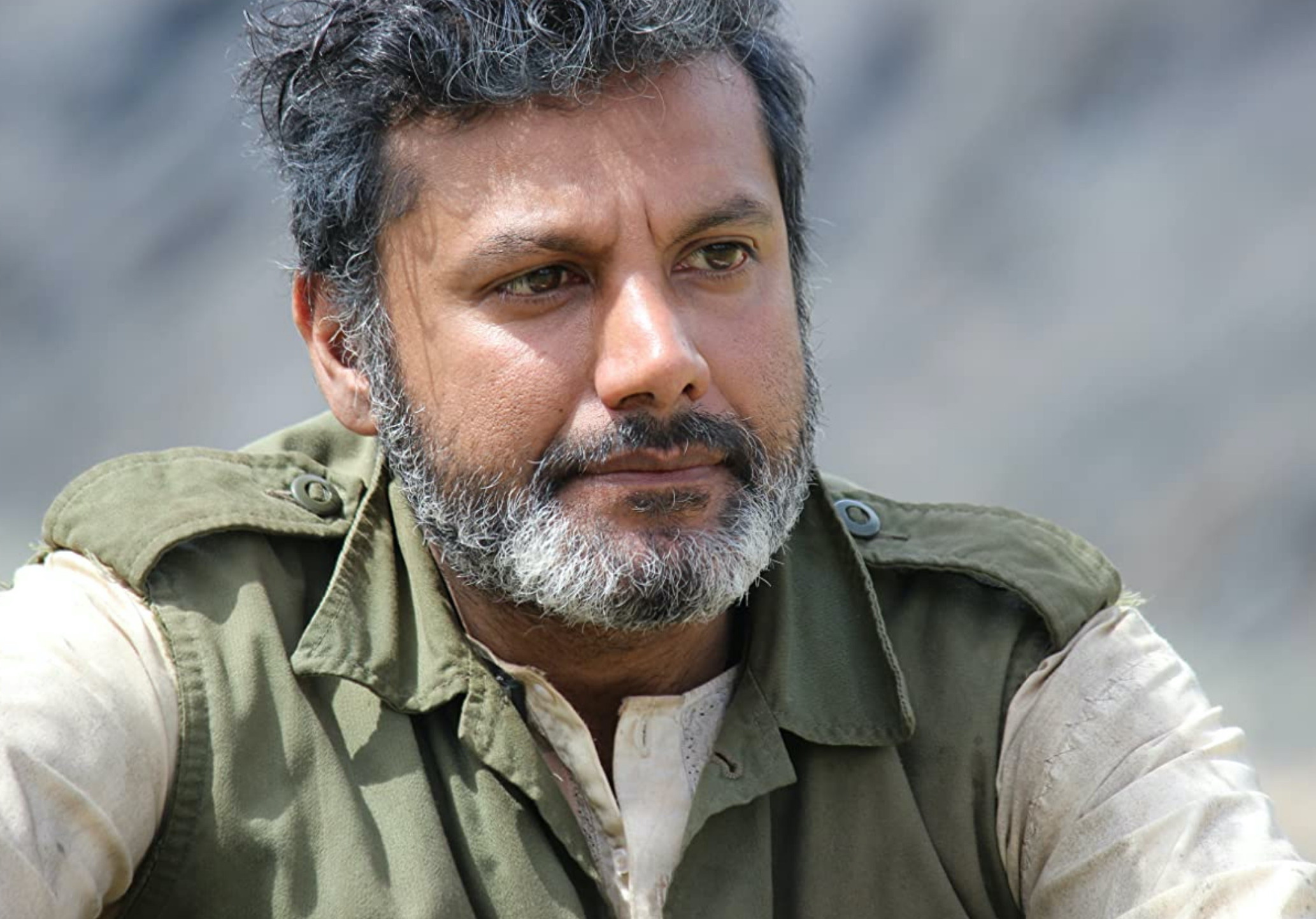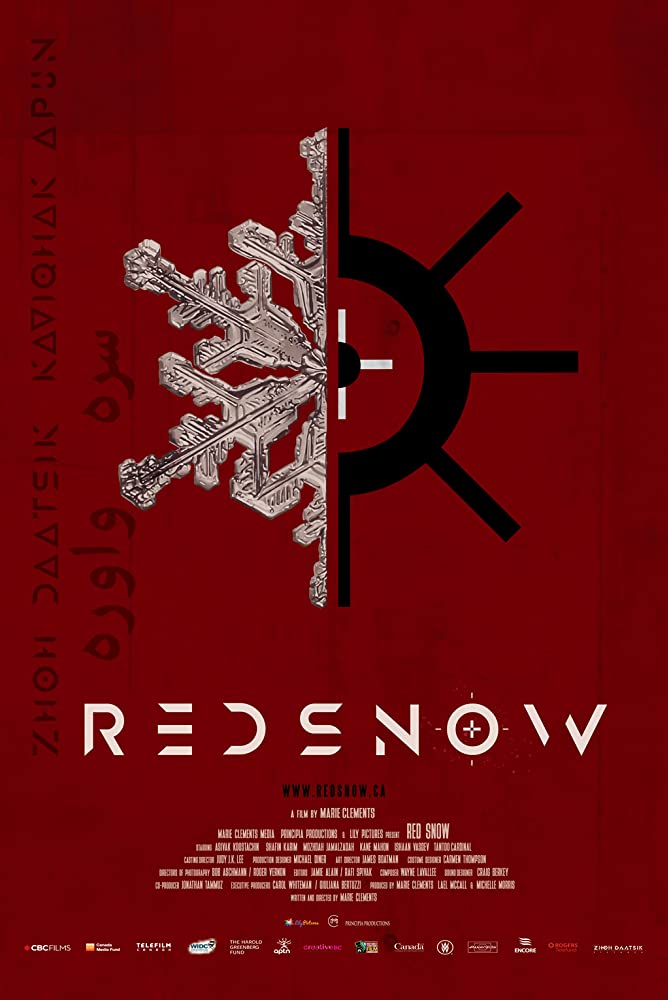War is hell. It brings out the best and worst of people. My uncle fought in the Korean war… and those memories followed him around for the rest of his life. He didn’t start the war, he was only fighting to survive and to come home – and he did. Now imagine that you’re Indigenous and in Afghanistan fighting a war. You’re putting your life on the line for a country that has forced generations into residential schools and force many to live in poverty conditions. All you want to do is go home to your family, but the people shooting at you only want you dead. Red Snow is the powerful story of Dylan, a Gwich’in soldier from the Canadian Arctic, who is caught in an ambush in Panjwayi, Afghanistan. His capture and interrogation by a Taliban Commander release’s a cache of memories connected to the love and death of his Inuit cousin, Asana, and binds him closer to a Pashtun family as they escape across treacherous landscapes and through a blizzard that becomes their key to survival.
This film features the talents of Tantoo Cardinal, Asivak Koostachin, Mozhdah Jamalzadah, Samuel Marty, Miika Bryce Whiskeyjack, Ishaan Vasdev, Shafin Karim and Kane Mahon. The Far North meets the Middle East in a journey of loss and rebirth that lays bare the land, blood ties, and two ancient cultures that collide to reimagine a future born of 10,000 words for snow.
RED SNOW is written and directed by acclaimed Métis playwright, director, producer, and screenwriter, Marie Clements. Her credits include the documentary feature The Road Forward, Looking at Edward Curtis and her fifteen plays, including The Unnatural and Accidental Women. Marie Clements work has garnered numerous awards, including the 2004 Canada-Japan Literary Award and two prestigious Governor General’s Literary Award nominations.
RED SNOW has won numerous awards including Best Screenplay, Best Feature and Best Director at VIWFF, Most Popular Canadian Dramatic Feature at VIFF, Best Canadian Feature Drama at EIFF, Best Director at the American Indian Film Festival, Best Achievement at the LA Skins Festival, and many more nominations at international festivals including LA Skins, American Indian Film Festival, the DGC and 10 Leo Award nominations.
If you have a great story, you also need a star to tell it. Introducing Mozhdah Jamalzadah in her feature film debut. Mozhdah is best known for her internationally renowned music career and ground-breaking television show The Mozhdah Show. She’s the first Afghani artist to produce hit records in English, capturing a global audience and performing on international stages. She’s the first Afghani woman to brave death threats in order to host her own talk show and cover sensitive subjects impacting Afghani women and children. She’s the first Afghani female artist to perform in the White House, or appear on The Oprah Winfrey Show, or express her mission of empowerment on CNN and she’s the lead actress in Marie Clements Red Snow.
We had a golden opportunity to talk to both of these amazing ladies through Zoom and it was unforgettable.
HNM “This is an incredible film. How was this story inspired?”
MARIE “I had been looking through a photo essay on Canadian soldiers in Afghanistan in 2009, when I had come across some images of Canadian soldiers and Indigenous Peoples of Afghanistan. I was struck by the resemblance they had in certain angles, to Indigenous Peoples of Canada. It made me think about the dialogue that would take place if these two ancient cultures happened to be in the same space – it took off from there.”
HNM “This film really does a great job at showing the contrast between two cultures but also the strong similarities. Was this the intention?”
MARIE “I was definitely curious about another Indigenous culture and how it might resonate with our Indigenous culture here. I also wanted to look at how as all people, we can look radically different on the surface but as we get to know each other, we get to see how similar we are when it comes to things that matter and resonate with us. It became a huge theme in the drama, once I understood that there are things in common with all of us.”
HNM “When you’ve been screening this film at festivals, have you found that those similarities you point out in the film, resonate with the audience?”
MARIE “I wasn’t sure if the audience would connect with the idea because of the two distinct cultures from very different sides of the world. It was really touching that the audience was able to make the connection easily and I believe all people feel the same urgency to be treated equally and to build a future for our children that is humane and respectful.”
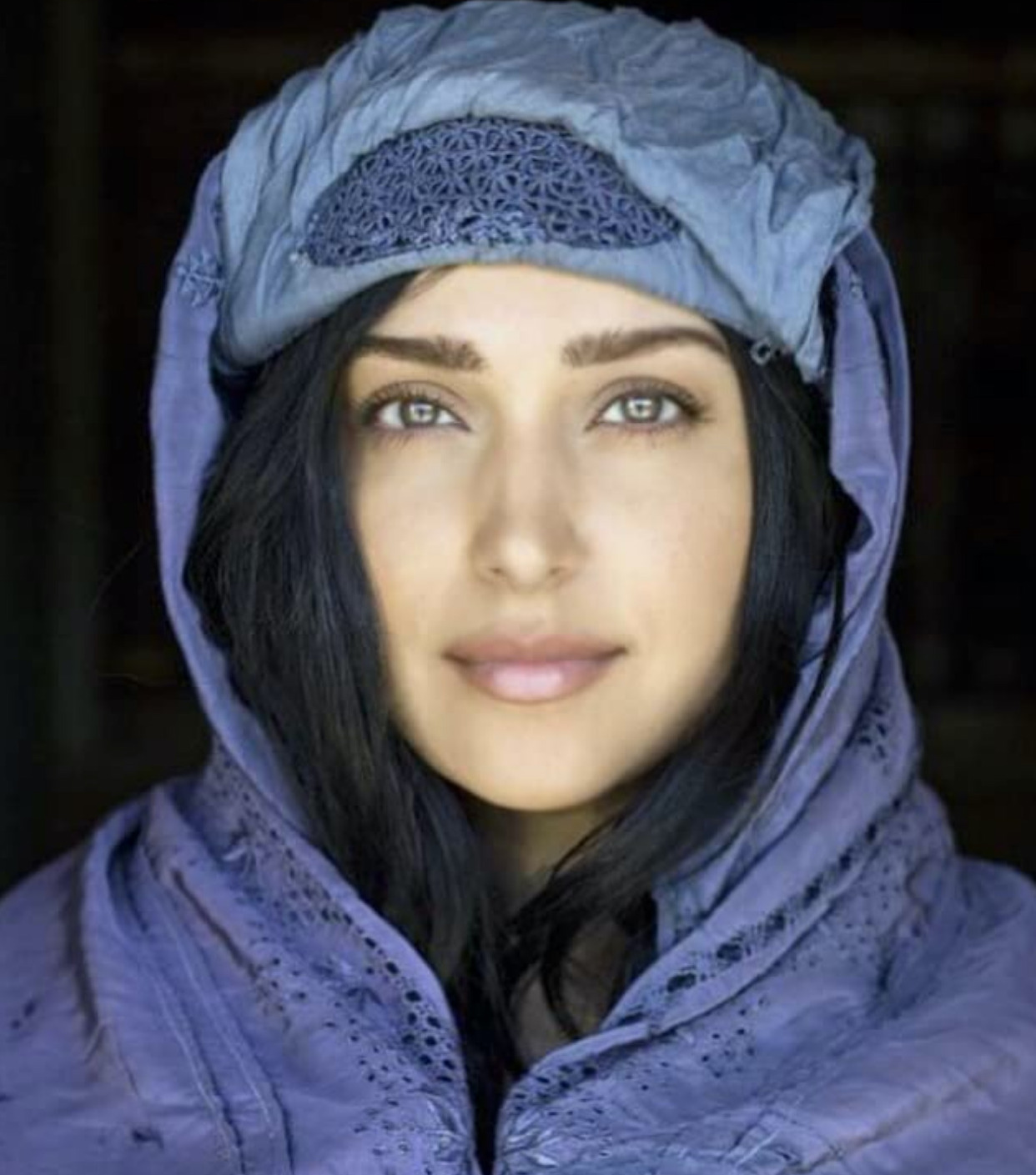
HNM “Hello Mozhdah – I’ve read that you hosted your own talk show in Afghanistan and that your fans have referred to you as the Oprah of Afghanistan. In addition, you are also an accomplished singer, activist and author. You now find yourself playing the lead female in a feature film. Is acting new to you or have you performed in the past?”
MOZHDAH “It’s all fairly new and I always say, it’s all in thanks to Marie for trusting me to play this very strong character, Khatira. When she had approached me a couple of years ago, I let her know that I wasn’t an actor… but she believed in me and I didn’t want to disappoint her. This was one of the biggest opportunities of my life, so I wanted to be sure I was ready for it. I started taking acting classes, I got an agent and started auditioning for small roles and commercials, to be able to get comfortable with the industry/art. By taking the classes and working with coach’s, I worked on it until I felt ready enough. When you’re approached by an amazing director, you don’t want to turn them down (laughing). I’ve seen her previous film, The Road Forward and I know that she is also very involved in the music aspect of her films. To be a great director, I think you also need to have great musical talent to know what to put in there – I believe that makes it extra special.”
HNM “The music in this film really enhances the mood of the scenes so well – did you use the same composer from The Road Forward?”
MARIE “I was definitely working with long time collaborator and composer Wayne Lavallee. It’s pretty amazing when you have an international music star as one of your leads in your film, it just made sense to also have Mozhdah contribute to the soundtrack. We also had the music from different cultures represented throughout the weave of the story. We were listening to the music of the landscape we were on, we were listening to the languages, as well as people that came from different parts of the world.”
HNM “Would you consider yourself a visionary?”
MARIE “I think you definitely need to have a vision, as well as knowing how to execute that story and vision. I don’t like using the word because it seems so weighty but I do believe that directors do have visions and why it’s so absolute to execute the story you’ve been fighting for but tells the story completely the way you had envisioned it.”
HNM “There must have been an incredible amount of research that went into this film in order to familiarize yourself with Afghan culture. How long did pre-production last?”
MARIE “It took close to 10 years to get to screen and as someone that doesn’t come from the Afghan culture, I was reading everything I could, googling researching, talking to people. I was very graced to have Mozhdah’s father, Bashir Jamalzadah come in early in the process of pre-production, to ensure everything was in tune and in heart with exactly what we were representing. He came in early to look at the script to be sure that everything made sense on all levels. We also had cultural translators and advisors on set every day and they kept us on our toes – so we were all responsible. There was an extraordinary amount of work and love that went into it.”
HNM “How did the both of you meet?”
MARIE “(Laughing) I kind of stalked her.
MOZHDAH (Laughing) I checked my Facebook inbox, and there’s usually a lot of fan mail… but once in a blue moon you get a business or work-related message. As I was scrolling through the messages, I came across Marie Clements name and through my director and actor friends, I knew she was legendary and amazing, and I knew of her work. When I had seen her name, I thought it might be from her fan-page but when I opened it, she had said that she’d like to meet. I replied back and we later met at a coffee shop a few blocks from my place. She is one of the most humbling and amazing people I’ve met in my life and we hit it off immediately. We clicked and we bonded – it developed from there. After she sent me the script and I read it – it was my dream role.”
HNM “Is this the first person you’ve ever stalked Marie (laughter)?”
MARIE “I think it is… and I’m glad it was a megastar that I stalked (laughing) and she actually met with me, so it’s a good story all around (laughing). She was perfect for the part, not just because of her talents but because of her activism and the kind of spirit that she has. It was a win win situation and one of those moments, when someone walks in the room and you go… that is Khatira and nothing is going to change that. The feeling was pretty mutual when we met.”
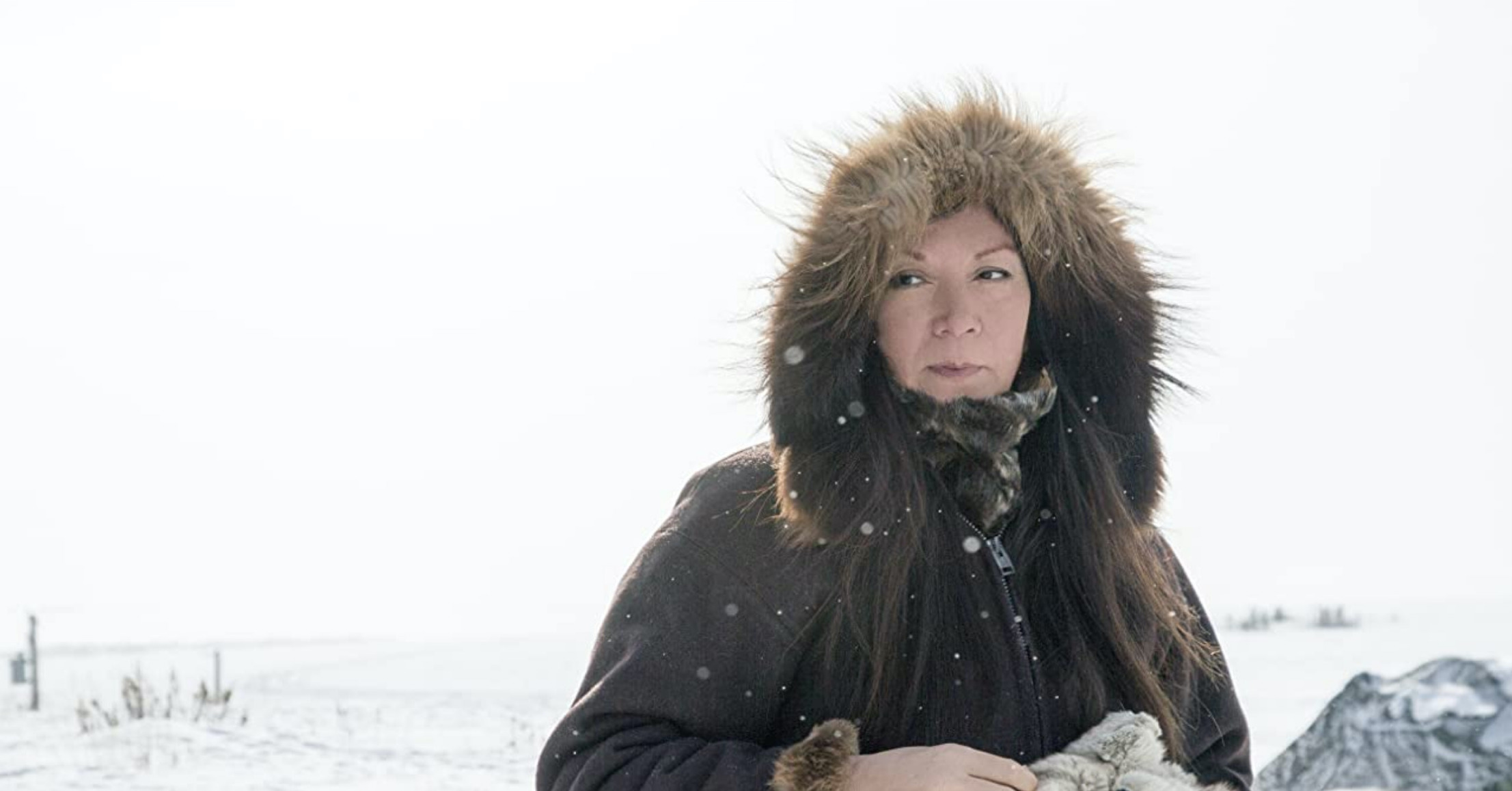
HNM “Having been born in Kabul, you’ve braved through death threats in order to host your own talk show and cover sensitive subjects impacting Afghani women and children. Where does that bravery come from?”
MOZHDAH “I’ve been told by my friends and journalists, that I’m either really brave or really stupid. I always say that it’s a mixture of both (laughter). I knew that there was a chance that I could lose my life if I went to Afghanistan, but not just because of death threats – because of the bombings and the terrorist attacks. Since I was young, I’ve always wanted to fight for the underdog. It boils my blood when I see injustice in minority groups, injustice against the mistreatment of women and in my own country. During the Taliban occupation, half the country were not allowed outside without a male escort, despite women being doctors, lawyers and in the workforce. They were being forced to stay home and they had their windows painted black, so they wouldn’t be seen. My parents urged me to use my position, my freedoms and opportunity here to help other women in bad situations. My dad is a feminist, a big influence and my hero. These women have the right to live and basic human rights – I needed to fight and speak up for them… because I can, because I’m here with a Canadian passport. Those women don’t have that same opportunity, so I had to do it.”
HNM “This was your debut narrative feature, which turned out to be a phenomenal film. How did you know you were ready to make the leap to narrative feature film?”
MARIE “I think I wanted it, I needed it and I could see it – I think it’s what propels us as artists to action. Sometimes we don’t know everything but something you learn in this business, whether you’re a writer, director or producer… you can’t know everything but if you surround yourself with really smart people and really great talent, you can use everything you’ve learnt and everything you are to make a movie and tell a story. It’s a leap of faith, but I was surrounded by some of the best in the industry – I was very lucky.”
HNM “What were some of the biggest challenges in making this film?”
MARIE “Realistically, we had a great budget that we were honoured to receive. The piece itself was quite ambitious… shooting two different cultures. We’re shooting outside on land with extreme weather conditions. One day of shooting would be -50 and another day would be +38. We’re shooting with dogs, in 4 languages and we only have 20 days. Things can go wrong when you have that many challenges, but we all came together – the performers and actors, the crew and everyone behind us. I don’t think we truly understood that the journey of the characters was also the journey of all of us making it, because we were on the land and it was really hard sometimes.”
MOZHDAH “There were A LOT of challenges but one takeaway… is definitely how patient Marie is. She had a smile on her face the entire time and her voice level never changed – we were all stressing, including the crew… but when you heard her voice, it calmed everyone down. My dad even called her superhuman because of her calm demeanor throughout so much going on. Now when I’m in a situation – I ask myself, ‘what would Marie do, how would she handle this (laughing)?’ It became a big part of my life and I feel like it changed me.”
HNM “That leads into my next question, what have you learned from being in this film?”
MOZHDAH “I think I’ve learned a lot from this movie, especially patience. Something else, was how eye opening it was, given the way it was written. In all this time that I’ve been fighting for women’s rights… I’ve never worn the burka. That moment I wore it, I became completely overwhelmed and began to panic and started hyperventilating. It was so psychological, because it was the first time I’ve placed myself in their shoes. Every time I screen the movie, I learn something new. There is so much depth to Marie’s films, you can learn something new every time you watch it.”
HNM “Considering this film has won multiple awards, is there added pressure to maintain that level of filmmaking going forward?”
MARIE “I think there’s always added pressure in this business, it’s not unusual. I was just listening to some coaches in basketball, which I loved. They were saying that they want to lean into the pressure, I love the pressure. It forces you to be excellent and to continue to strive for the best, not only for yourself but also for others. I think there’s something exciting about it; as human beings, we all have self-doubt but once you’re in the Arts, there’s no time to have fear because it’s so immediate. You tell yourself that we need to get this, we’re going to get this and how we’re going to do it.”
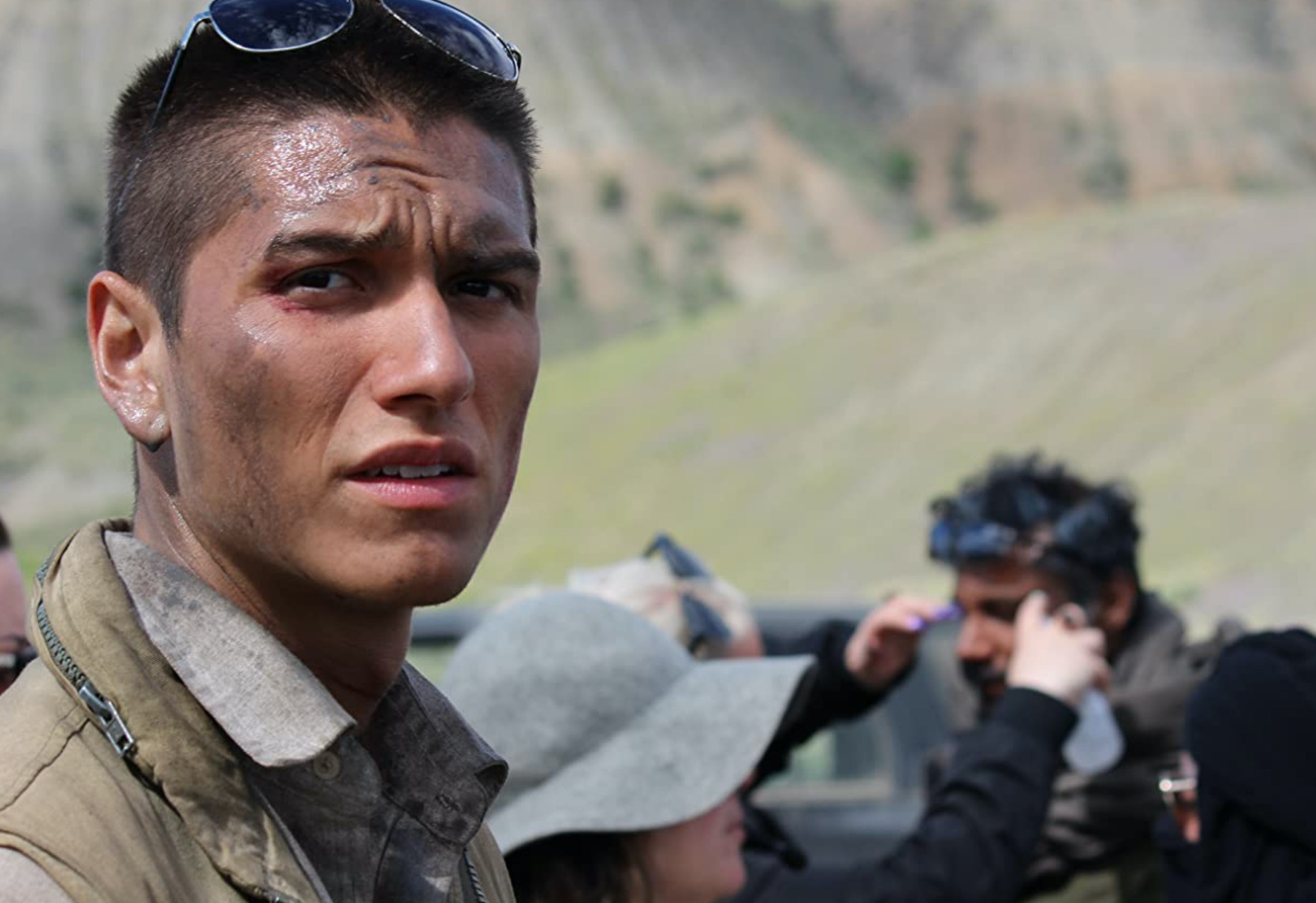
HNM “At the end of the film, there are a few of you playing in the snow. Did you have an opportunity to ride on a skidoo?”
MOZHDAH “I didn’t get a chance to ride on the skidoo… (laughing).”
MARIE “She did come to the arctic with these little tiny city boots (laughing).”
MOZHDAH “They told me it would be cold, but I thought – how cold could it be? I brought my biggest jacket and my heeled boots. They were making fun of me and one night we went out… and I almost fainted from the cold, they sent me back to the hotel in a cab (laughing). At one of the screenings, someone had asked Ishaan Vasdev, who plays my younger brother Tahir, if he had any interesting stories about the arctic. He says, ‘oh yeah, I have a funny story. When we went out there, Mozhdah wore her little high-heeled boots and a really small jacket and she almost fainted and we had to send her back’ (laughing).”
HNM “This film is going to be on CBC Gem on Oct. 23rd and 24th. Where can the film be seen after those dates?”
MARIE “Yes, it’s also on iTunes by our distributor and will be released in the US by our US distributor, hopefully in the next few months.”
HNM “What’s next for everyone?”
MARIE “I’m working on a 5-part mini-series called Bones of Crows – it’s a psychological drama and we’re hoping to go into production in March. It revolves around a pre-matriarch – her name is Aveen Spears and she’s a Cree code talker in WWII and she goes to war. Her husband is also Coast Salish and they’re beginning a new life when old memories from their experiences in residential schools come back into their reality. It looks at a family of 5 generations and their experiences with residential schools and how that reverberated into 100 years and 5 generations for one entire family. Cinematically, I believe there’s only been 2 features on residential schools, so we really haven’t seen the entire scope of it. I’m really honoured to be able to work towards that. I believe it very original for Canadian audiences and for any people that have dealt with systems that have upheld pedophilia in the world.”
MOZHDAH “I want to focus on creating something similar to The Mozhdah Show, where we empower young girls. The self-confidence and self-esteem happen at a pretty young age for girls and I believe if we focus on building their confidence at a younger age, they can continue to carry that confidence throughout their lives and stand up for themselves – fighting for their own rights. That’s going to be my goal, I also have a children’s book coming out and I’m also working on another album. I want to use my platform to reach a broader audience to talk about these important issues.”
An incredible film that compares two Indigenous cultures from opposite sides of the world to conclude… despite our differences, were very similar in our struggles.
